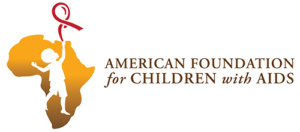 Are you ready to hike to the Tashi Chime Gatsal Nunnery in the remote peaceful Sherpa village of Bigu, Nepal? It is a wonderful experience and we hope you will join us on this Climb Up adventure.
Are you ready to hike to the Tashi Chime Gatsal Nunnery in the remote peaceful Sherpa village of Bigu, Nepal? It is a wonderful experience and we hope you will join us on this Climb Up adventure.
Bigu is located at 8,200 feet in elevation, looking down onto a beautiful valley that offers breathtaking views, especially at sunrise. There is only one road leading into the village, which is often unusable. Most of the time, the only traffic you’ll see is people on foot and the occasional cart! We travel from Kathmandu for several hours by jeep on very rough roads. Depending on the time of year, the jeeps may only be able to go part way before we begin the hike to the village. But we have porters to carry our luggage and supplies, so all you’ll need to carry yourself are items you’ll need during the hike. In the dry season, those not wanting or able to do the hike can take a jeep all the way to Bigu.
Once you arrive in Bigu, you can decide if you’d like to rest and relax, reading, knitting, doing yoga, hiking, etc. Or, if you’d like, you are welcome to do things such as:
- Minor construction and painting projects
- Teaching English
- Teaching classes on basic first aid, women’s health, nutrition, hygiene
- Providing basic medical care
- Helping the nuns with their daily chores like cooking meals, tending the gardens
The nuns of the monastery invite you to participate in almost every aspect of their daily lives during your stay – sharing meals, attending sunrise pujas (prayers) and helping with their chores around the monastery – making for many memorable experiences. What you do while at Bigu is all up to you!
Participants will spend 2-3 days in Kathmandu, as well, experiencing the city which has inspired many dreamers to head eastward.
Teams of no more than 10 people are welcome. Each participant raises $3500 (does not include international flight), with $2000 going directly to AFCA’s children. If you are interested in joining a team to Nepal, click the links to the right to register.
Opportunities to travel Nepal while supporting the programs of AFCA’s partners in sub-Saharan Africa and having a fabulous cultural experience.
Details regarding the process of joining a team can be found by clicking on the ‘Join a Team’ tab.
If you are looking to make a donation to a fundraiser’s individual webpage, click on the ‘Apply online’ button below relating to the individual’s team. Then just scroll down the page that opens and you’ll find a section headed ‘Support a Fundraiser’ and you’ll find your friend there.
CURRENT TEAMS
NO CURRENT TEAMS
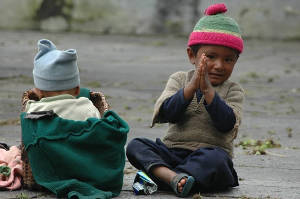 STEP ONE: THE APPLICATION
STEP ONE: THE APPLICATION
Download the application by clicking here or fill in a registration form directly online by clicking on the team you wish to join in the list below.
Complete the application and submit it by email, fax or by mail. Be sure to make your application as complete as possible and include the dates you’d like to travel to Nepal. Available dates are:
NO CURRENT TEAMS
After your application is submitted along with a $500 deposit, you will be part of the team.
STEP TWO: PAY YOUR DEPOSIT
Upon submitting your application, you’ll need to pay your $500 deposit with 14 days to AFCA for the application to be complete. This deposit is non-refundable and non-transferrable.
You may submit this $500 deposit either online or by mailing a check or money order.
Checks and money orders must be made payable to AFCA and mailed to:
American Foundation for Children with AIDS
1520 Greening Lane
Harrisburg, PA 17110
Please ensure you add a sticky note to the back of your check/money order, with your name and ‘Nepal’.
Pay Your Deposit Online
After you have made your deposit, you are officially on the team!
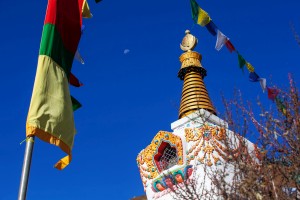 For most of us, flights will take a couple of days to get to Kathmandu where the team meets up, due to long flights, time differences, and most flights to Nepal requiring an overnight layover. Along with the travel days, the schedule includes:
For most of us, flights will take a couple of days to get to Kathmandu where the team meets up, due to long flights, time differences, and most flights to Nepal requiring an overnight layover. Along with the travel days, the schedule includes:
- two days for travelling to Bigu;
- seven days in Bigu;
- two days to travel back to Kathmandu;
- two nights in Kathmandu after returning from Bigu for sightseeing and shopping
And for those with time either before or after our time in Bigu, a world of wonders and adventure await you in Nepal!
DOCUMENTS AND MONEY
- Passport – You’ll not get far without it!
- 2 extra passport photos – Just in case
- Medical Insurance information
- Medical card – Detailing any medical conditions, allergies, etc.
- Copies of all important documents – For sure, include passport and airline tickets
- Neck pouch/Money belt – For safety
- Small padlock and keys for luggage – For in-room security
- Credit card / ATM – May not be readily usable except in major centers. REMEMBER to bring phone numbers for credit card companies separately in case a card is stolen
- US$ cash – Crisp, no stains. $100 bills best. At least as new as 2000.
CLOTHING – FOR HIKING, BIGU AND KTM
- Long pants – Ones with zip-off legs work great for unpredictable weather. Make sure they are light-weight if you want to be able to wash them on the line
- Under-layers – For your legs and your upper body…for cold nights
- Shirts Long and short sleeves. – Quick-dry work best – cotton can hold in the moisture and take a long time to dry
- Clothes for layering / fleece – Helps adjust to various temps – and better packing
- Hiking boots- For the hike and for day use in Bigu
- Flip flops – For the shower
- Other shoes – Comfy shoes for while at the nunnery
- Slip-on shoes / slippers – You must take off your shoes when indoors, so indoor having footwear is handy and keeps your feet warm
- Lightweight rain jacket / poncho – Just in case
- Socks & Underwear – Warm socks, wool hiking socks
- Wool hats and mittens – You will need these in the evenings and early mornings
- Jackets – What you bring to layer will dictate the kind of jackets you’ll need. For the hike, something light and breathable. For Bigu, something warm (down works great)
- Clothes for Kathmandu – We’ll be in a touristy area – you can be as casual or dressy as you’d like. Just be conservative and plan for temps from very warm to cold!
FOR HIKING AND BIGU
- Hiking poles – Can be helpful while hiking
- Water bottles – You’ll need 2 if hiking, just one if you’re not
- Water purifying tablets – To use if you’re not comfortable with boiled water
- Trail snacks – For energy on the hike
- Headlamp – Outdoor lighting is scares / for reading at night
- Waterproof cover / large plastic bag – To keep your luggage dry and cleaner on the jeep drive
- Sleeping bag liner
- Laundry soap
- Solar shower bag
TOILETRIES AND PERSONAL
- Soap
- Shampoo & Conditioner – All-in-one saves water and time in the shower
- Hand sanitizer / handiwipes
- Deodorant Please! 🙂
- Nail file/Clippers
- Tooth picks / Dental floss – Many travelers regret leaving this one behind
- Personal cosmetic items – You won’t need much for Bigu!
- Shaver / Razor
- Toilet Paper / Packages of Kleenex – It will be supplied in Bigu, good to have in your pocket!
- Sun screen lotion a MUST
- After-sun lotion / aloe vera gel – In case you get a burn
- Insect repellent – Bugs usually aren’t an issue, but just in case
- After-bite lotion / sting relief – Helps with the itching
- Extra contact lenses / glasses – In case you lose one
- Feminine hygiene products
MEDICATIONS (SUGGESTIONS ONLY)
- Prescription medication – Bring repeats / extras – won’t be easily replaced
- Recommended travel meds – Whatever your doctor or the travel clinic recommends
- Imodium / Anti-diarrheal medication – Not unusual to need this a time or two
- Laxatives – Just in case you have the opposite condition
- Ibuprofen / pain relievers – Gel or tablets for tired muscles
- Foot spray – Another little luxury normally placid travelers kill for!
- Blister bandages / moleskin – Just in case you need it on the hike
- Decongestant – Sudafed, Afrin or generic equivalents
- Antihistamine – Benadryl, Claratin, generic equivalents
- Cold medications – Its easy to catch a cold on all those flights
- Cipro / Amoxicillin – For traveler’s sickness
- Sleep aids / sleeping pills – Helps you get some sleep on long flights – or if you’re rooming with a snorer – or for the barking dogs at night!
- First Aid supplies – Something simple for your personal use – bandaids, Neosporin, athletic tape, tensor bandage, etc
- Vitamins – Sometimes meals aren’t as balanced as at home
- Other useful meds to consider – Hydrocortisone cream; eye rinse / drops; motion sickness meds; antacids; nasal spray; mole skin for blisters
OTHER ITEMS YOU MIGHT CONSIDER:
- Pillow – Having your favorite pillow from home is wonderful!
- Sunglasses
- Flashlight / headlamp / batteries
- Zip lock / plastic bags – For dirty/wet clothes, liquids, aerosols
- Earplugs – For noisy dogs…and roommates
- Camera, film, batteries, cleaner – Don’t forget extra batteries!
- Ipod / music player – For downtime and to share with locals
- Flight neck pillow – For those loooooong flights
- Good paperback or two – Good for flights and down time. Great to leave behind
- Playing cards / games / puzzles – For the evening leisure time
- Small family photo album – Easy to carry and are a hit with the community
- Travel alarm clock – To get you up for morning prayers, if you’re interested
- Binoculars – There is so much to see!
- Camping/Swiss Army knife – But make sure it’s in your checked luggage
- Bubble wrap – Great for packing souvenirs
- Duct tape – It always comes in handy!
- Small journal/notebook – No matter how tired, you appreciate having written
- Favorite snacks – Little familiar treats from home are always great
- Energy bars / tuna / extra protein – For when the meals don’t provide enough energy
- Thermal drink mug – To keep your hot drinks warm longer
- Water flavorings – For hot drinks and cold
- Musical instruments – Not the grand piano!
- Adapter – So you can use the local electrical plugs
- Small sewing kit – Really comes in handy!
Thank you again for committing to helping children served by the American Foundation for Children with AIDS (AFCA)! Our Payment Policies and Procedures guide applies to everybody who commits to a Climb Up Nepal So Kids Can Grow Up (CUN) fundraising trip, so please read this carefully.
We hope the following guide proves helpful for those of you who are fund raising the financial support necessary to make your trip a reality. Be sure to review the information here before beginning your fundraising efforts. These guidelines are in place to ensure that you have the opportunity to join others in the mission of AFCA to help provide medicine to children in Africa affected and infected by HIV/AIDS.
DEPOSIT AND BALANCE
Once you have applied for a CUN team, you must confirm your place on the team by submitting a non-refundable and non-transferable deposit of $500 within 14 days to AFCA. The balance of trip payment (trip cost minus the $500 deposit) is due no later than 90 days prior to departure.
Note: if you are part of a “closed group” (church, corporate, civic club or other group that is not recruiting team members outside your organization), please confirm the deposit amount with your team leader, and understand that it is non-refundable.
SUBMITTING PAYMENTS
All payments toward your trip must be made in U.S. dollars to AFCA and designated to CUN program (see the “coding donations” sidebar). Payments may be submitted by personal check, money order, MasterCard, Visa, or American Express. Your trip payment covers your lodging, food, ground transportation, orientation materials, your climbing fees, and a donation to AFCA’s programs. Not covered are: costs of passports and visas; excess baggage charges; immunizations; travel insurance; international airfare; airport departure taxes; sightseeing, game drives or meals not listed in each itinerary; laundry; communication charges; and gratuities.
You or your donors may submit funds by credit card via your personalized fundraising page created on AFCA’s website or by telephone by calling AFCA at (888) 683-8323. You can create your personalized fundraising page as indicated in the section ‘Funding your trip’ below. Participants and donors who submit funds by credit card will receive an automatic e-mail acknowledgment.
Checks and money orders must be made payable to AFCA and mailed to:
AFCA
1520 Greening Lane
Harrisburg PA 17110
Your deposit and any payments you submit toward the cost of your trip will automatically be credited toward satisfying your financial obligation only when coded as per the coding donation section below.
CODING DONATIONS
For a donation to be credited toward your trip, your name and “Nepal” must be written on a sticky note and submitted with payment to the AFCA office on your behalf.
Online credit card payments should be made either via the ‘Pay Deposit’ button on your team webpage or via your individual fundraising webpage on AFCA’s website. This is a very simple process. See below for more details.
FUNDING YOUR TRIP
- Fundraising web page – You can create a personalized fundraising page, by going here. Click on ‘Register/Create Fundraising Page’ > ‘Individual’ and then, the option to create your fundraising page. The web site quickly and easily directs you through the creation of your own web page where you can then direct your donors. If you apply to join a team using the online registration form, your fundraising page will be created automatically during the registration process. You can then direct potential donors to your web page where they can learn more about AFCA and your specific trip. This is a GREAT way to get the word out! Contact AFCA for more details.
- Matching gifts– Contact your company’s matching gift officer prior to submitting a matching-gift form. Not all companies’ matching-gift policies allow for the matching of participation fees. If applying for matching gifts, notify AFCA.Note: Matching gift funds may only be used to offset the final balance owed if they are received by AFCA at least 30 days before the trip departure.
- Tax deductibility – Funding raised toward the cost of a CUN trip also includes the cost of food, lodging, climbing fees and transportation during the trip. A portion of the required trip payment supports the charitable purpose of AFCA. Depending on the participant’s country of origin, this trip’s cost may or may not be tax-deductible. Please consult a tax adviser concerning your specific situation.
- Acknowledging donations – All donors who contribute via check or money order payable to AFCA or who make a credit card donation designated to a CUN climber are sent acknowledgment letters by AFCA. Those who donate on line (via a personalized web page or via the link “Donate Now” on AFCA’s website) receive a prompt e-mail confirmation that the donation was received. Checks should not be made payable directly to you.
- Funds raised in addition to the published trip cost – One of the stated purposes of the CUN program is to raise funds for children in Africa who are impacted by the AIDS pandemic. To remain consistent with our mission, AFCA is not able to roll additional funds over to a future CUN trip. AFCA will use any additional funding that you raise towards the children we support.
- Fundraising for airfare – Funds raised in excess of the trip cost may not be used to cover all or part of a CUN team participant’s airfare. However, we recognize that some people may want to raise money for their airfare. Please do this on your own. Participants may still be able to claim their airfare as a tax-deductible expense even if the funds are paid directly from the participant to a vendor, as long as the trip is in pursuit of a charitable purpose. Team members will need to contact a tax adviser concerning their specific situation.
CANCELLATION POLICY
Due to the nature of the government fees and operators’ permits, AFCA must adhere to a strict refund policy.
For all trip cancellations received more than 90 days prior to departure, the $500 deposit is forfeited, as well as the $500 deposit made on your behalf to the guide company. For cancellations 45-89 days prior, the fee is 50% of the total trip price; 45 days prior or less, 100% of total trip price.
If you feel there is a chance that you may need to cancel a trip, we recommend that you purchase trip cancellation insurance.
- If AFCA must cancel – We will make every effort to conduct the trip as scheduled; however if AFCA must cancel, we will attempt to place you on another team. If that is not possible, you may receive a full refund. AFCA cannot compensate participants for the cost of unusable airfare or any other expenses resulting from the cancellation.
AFCA will contact you to explain how to claim your refund if we must cancel your team’s trip. - Delay’s en route – If delays occur en route, or missed or cancelled flights cause you to miss your rendezvous with the team, AFCA staff will do everything possible to assist you in connecting with the team. However, AFCA cannot be responsible for an expenses incurred due to flight problems.
THANK YOU!
Once again, we appreciate your dedication to AFCA’s mission and your willingness to participate in a Climb up Nepal trip. Thank you for complying with AFCA’s Payment Policies and Procedures guidelines and please let us know if we can be of any additional help.
Whether or not you are planning to hike into and out of Bigu, we strongly recommend that you discuss with your doctor the conditions you will face on this adventure, including:
- High altitude: On the way to Bigu, we will reach an altitude of 10,000 feet in the jeep, 11,000 for those who are hiking. In Bigu, we will be staying at about 8,000 feet. Your doctor may recommend that you have medications to help with altitude sickness.
- Potential for dehydration: Being at high altitude can also cause dehydration if you aren’t careful. And on the hike, you should carry two bottles of drinking water for yourself.
- The physical challenges of the hike: It is a long, often strenuous hike. We will be able to divide into two groups if needed – one that takes the more direct route (about a 6-7 hour hike) and one that takes the less-steep, meandering “road” (about an 8 hour hike). The trail can be challenging with steep parts intermixed with less difficult treks across open meadows. We begin the hike at about 8200 feet, hike up over a pass at about 11,000 feet, back down to the river (7200 feet) before making the final uphill trek into Bigu (at 8200 feet). Here is a profile of the hike route:

 For those who are planning to hike to Bigu, you will need to invest some time to physically prepare for this challenge. Your training regimen should include cardiovascular endurance (via aerobic training), leg strength (through strength conditioning) and endurance (because the hike is 7 hours), and hiking-specific training (via hiking or long walks with a light pack).
For those who are planning to hike to Bigu, you will need to invest some time to physically prepare for this challenge. Your training regimen should include cardiovascular endurance (via aerobic training), leg strength (through strength conditioning) and endurance (because the hike is 7 hours), and hiking-specific training (via hiking or long walks with a light pack).
Cardiovascular Conditioning
Suggested activities include running, walking on an inclined treadmill, doing stairs (in your office building, at a local school stadium), trail running, working on an elliptical machine, walking up and down hills, or participating in step aerobics classes.
Strength Training
Strength training primarily for your legs will give you the functional, trekking-specific strength that will help you the most on the ups and downs of the trail. We suggest focusing on exercises such as squats, lunges and step-ups. If you use the machines at a gym, focus on leg extensions and hamstring curls. Try to progressively increase the amount of weight used, repetitions completed and number of sets.
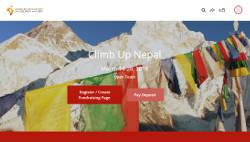 Fundraising can be a bit daunting, but you shouldn’t let that stop you from being part of Climb Up Nepal. We are here to help you with brainstorming and to answer any questions you have. Please contact us at tweaver@AFCAids.org with questions but also check out our tips. Maybe one or two of them will help you get on your way to your fundraising goal.
Fundraising can be a bit daunting, but you shouldn’t let that stop you from being part of Climb Up Nepal. We are here to help you with brainstorming and to answer any questions you have. Please contact us at tweaver@AFCAids.org with questions but also check out our tips. Maybe one or two of them will help you get on your way to your fundraising goal.
STEPS TO SUCCESSFULLY FUNDRAISE:
- Make a list of everyone that you know – friends, family, co-workers, professors, wedding guests, spouses/significant other’s family, people you do regular business with—dentists, doctors, gas stations, stores you regularly frequent, coffee shops, insurance agents, bakeries, brokers, gyms, anyone.
- Prioritize – put the people you know best first. Remember, people give to people. By asking the people you know best first, you will have success and it will make you more confident in asking those you don’t know too well.
- Download the sample letter and press release or create your own. Personalize it…make it exciting by printing it on brightly colored paper.
- Be specific. People like to know what is expected of them. If you know someone can only give $5 then ask them for $5. If someone can give $50, ask them for $50. By asking for a specific amount, you will be more effective.
- Keep track – get a 9×12 envelope and keep a record of everyone who has given you money and the amount and keep this record in the envelope along with the forms and checks. If someone gives you cash, deposit it to your account and write a check for that amount. Never send cash through the mail.Mail checks and the record form ahead of time to:American Foundation for Children with AIDS
1520 Greening Lane
Harrisburg, PA 17110 - Get the word out. You can hand people the letter, you can email it or you can mail it to them. To ensure that people will return the form with a check at a higher rate of return, put an extra size 9 self-addressed stamped envelope in the letter with your address on the outside.
To create an online fundraising page go here. Click on ‘Register/Create Fundraising Page’ and then, the option to create your fundraising page. The web site quickly and easily directs you through the creation of your own web page where you can then direct your donors. If you apply to join a team using the online registration form, your fundraising page will be created automatically during the registration process. You can then direct potential donors to your web page where they can learn more about AFCA and your specific trip. This is a GREAT way to get the word out! - Emphasize charity. American Foundation for Children with AIDS is a 501(c)(3) charitable organization so all donations you receive are tax-deductible to the full extent allowed by law. Make sure that checks are made out to the AFCA and make sure you keep track of who gives you cash and their addresses so we can send them a thank you note.
- Give thanks. It is important for you to personally thank your donors. AFCA will send a formal thank you to donors by mail.
You are ready to go! Keep remembering that you are asking people to help make a difference in the lives of others. Remind people that by giving a dollar a day, less than what they would spend on a cup of coffee, they can save a child’s life.
Please note: Funds raised toward the cost of a Nepal climb the majority of your expenses while in-country. Included are the following:
- Donation to AFCA as well as our in-country coordinating partner, a non-profit called “Himalayan Guge Organization”
- All meals in Kathmandu and Bigu
- Sleeping accommodations in Kathmandu and Bigu
- In-country transportation, to and from the airport as well as to and from Bigu
- Some team leader costs
Only a portion of your payment supports the charitable purpose of AFCA’s programs. Depending on your country of origin, the trip’s cost may or may not be tax-deductible. Please consult a tax adviser concerning your specific situation.
Fundraising for airfare: Funds raised in excess of the trip cost will not be used to cover all or part of a participant’s airfare. However, we recognize that some people may want to raise money for their airfare. Please feel free to do so on your own. If paid out of pocket, participants may still be able to claim their airfare as a tax-deductible expense even if the funds are paid directly form the participant to a vendor, as long as the trip is in pursuit of a charitable purpose. Participants will need to contact a tax adviser concerning their specific situation.
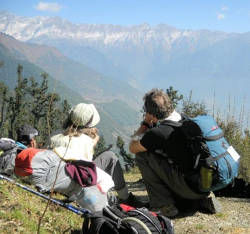 There are two options for accommodations at the Nunnery. The standard accommodations are shared rooms inside the monastery compound. Accommodations are rustic, but comfortable. We will be sleeping on single beds with two to four people per room. We use Asian-style squat toilets and solar showers (so be prepared that hot water is not always available). While lacking some comforts, this option puts you right in the center of the nuns’ lives, making for a memorable experience.
There are two options for accommodations at the Nunnery. The standard accommodations are shared rooms inside the monastery compound. Accommodations are rustic, but comfortable. We will be sleeping on single beds with two to four people per room. We use Asian-style squat toilets and solar showers (so be prepared that hot water is not always available). While lacking some comforts, this option puts you right in the center of the nuns’ lives, making for a memorable experience.
For those who prefer to stay in accommodations that are a bit more private and comfortable, you can stay in the Nunnery Guest House. The Guest House is situated just outside of the inner compound, but still within the nunnery grounds. It has a full kitchen, lots of communal space and two outdoor patios with spectacular views. There are two indoor, western-style flush toilets as well as two solar showers. NOTE: There is a surcharge to stay in the guest house – and space is limited, so it’s first come, first reserved.
We have all meals at the monastery, prepared by the nuns with help from team members. The food is typical Nepalese / Tibetan, primarily vegetarian and tends to be spicy. Most volunteers find the food basic but delicious!
Electricity is available in the evenings and throughout the night.
READY TO GET STARTED?
We make getting started is easy and will be here for you every step of the way.
Questions? Contact us at anytime!
You can either join an existing team or if you have a group of 4 or more people you can choose and form your own team!
